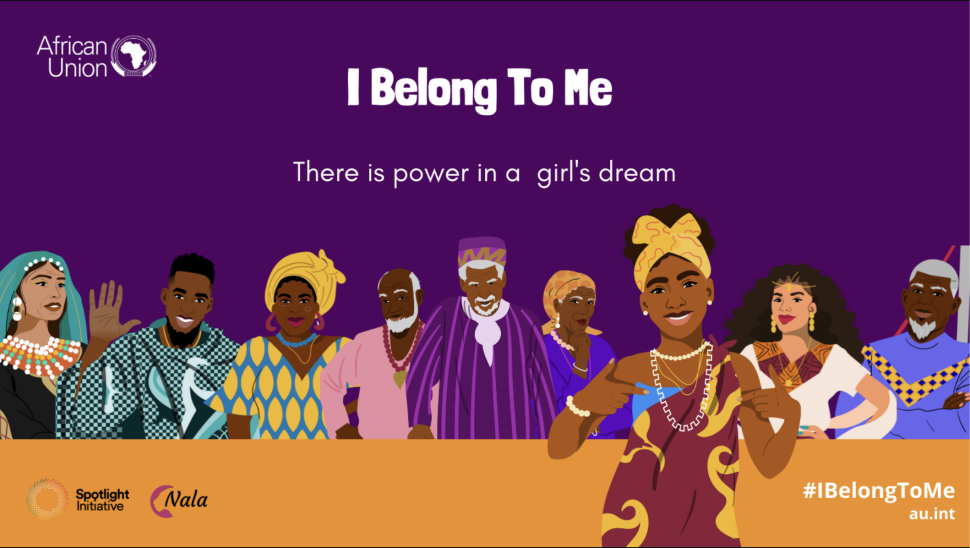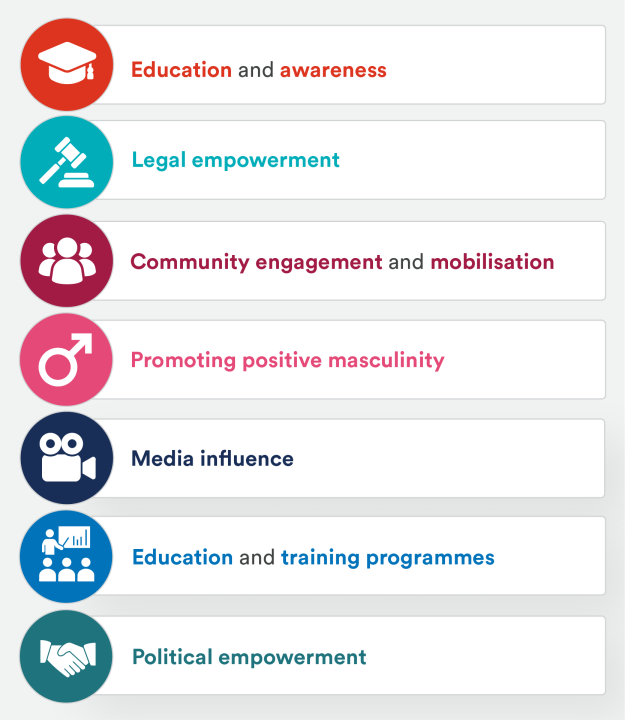Support social empowerment to help prevent VAWG

Support social empowerment to help prevent VAWG
Case Studies
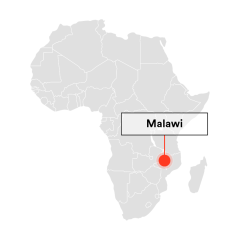
The Safe Space Mentorship Programme (SSMP) in Malawi supports gender equitable social norms, attitudes and behavioural change at community and individual levels. Supporting girls and young women from 10 to 24 years old, SSMP is a weekly programme that runs for 6 months addressing gender perspectives, sexual and reproductive health and rights (SRHR), gender-based violence (GBV), harmful practices, referral pathways, and life skills from a rights-based perspective. Its purpose is to empower young women and girls to recognise that violence is illegal, how it violates their basic human rights, and challenge harmful social norms and behaviours that perpetuate violence against women and girls (VAWG).
Led by UNFPA under Spotlight Initiative, the SSMP programme launched its mentor training in 2019 in collaboration with civil society organisations, supporting 435 women to become mentors across six districts in-country. Through 447 safe spaces, the programme has directly reached 36,135 young women and girls. The approach has covered a range of themes, from raising awareness of women and girls’ rights, challenging social norms, seeking justice, improving women and girls’ physical and mental health and well-being, contributing to their formal education and economic empowerment, and building strong networks that are able to support themselves and engage with leaders and decision-makers to claim for their rights, demand accountability from duty bearers and be part of decision-making processes. Ending child marriage is one of the greatest focus areas, with zero teenage pregnancies and child marriages among programme mentees during COVID-19 seen as a key impact of the programme, as shared by Beatrice Kumwenda, UNFPA Gender Programme Officer and Spotlight Initiative focal point.
“Now I know that I have the right to quality education, the right to freely express my opinion and that early marriage is not a solution – thanks to the safe space, because it has made me aware of my human rights.” 17-year-old mentee at Tilimbike Safe Community Space.
One of the key elements of the Safe Space Mentorship Programme’s success was its connection to existing community structures, such as youth peer groups and mothers’ groups. By leveraging existing structures and engaging with traditional chiefs, the Safe Space model was also embraced by traditional leaders and seen as an integral part of the referral pathways for GBV survivors. This strategy allowed a feeling of community ownership over safe spaces and contributed to its replicability by other districts, going beyond Spotlight Initiative's geographic area of work.
Read more about Tilimbike Safe Community Space in Malawi, and its impact on mentees.


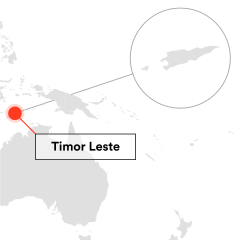
Spotlight Initiative, in consortia with World Vision and the national CSO Psychosocial Recovery and Development in East Timor (PRADET), designed and tested a model for empowering and providing psychosocial support to girls and adolescents who are survivors or at risk of sexual gender-based violence (GBV) in Timor-Leste. The process was informed by a mapping exercise in Ermera municipality, which sought to identify specialised survivor-centred services for adolescents outside of the capital, and involved 1,049 adolescents (522 boys and 527 girls) who provided insights on their specific sexual and reproductive health and rights (SRHR) needs. The mapping process informed a National Advocacy Workshop on Specialised Services, involving the government, civil society, and representatives from key marginalised groups.
Informed by good international practice, and driven by the needs assessment and mapping of local GBV service gaps, the workshop resulted in a 12-session plan that focuses on developing adolescents’ knowledge and capacity in socio-emotional and life skills, sexual and reproductive health, gender-based violence prevention, financial literacy, and career growth and development. Specifically, the model covers:
- response, provision of tailored adolescent-focused therapeutic care, including psychosocial support, referral and accompaniment to other services, resources and facilities;
- primary prevention empowerment of adolescents through provision of life skills and community outreach activities, and;
- long-term recovery and integration, including linking adolescent GBV survivors with livelihood opportunities.
To ensure implementation of the principle of Leave No One Behind, a consultative process with adolescent girls, relevant local government and civil society partners helped to finalise the model. To ensure sustainability, and continued improvement to the curriculum, a task force has been established for continued learning, engagement, and dialogue.


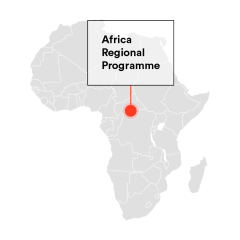
The guide “I belong to me” was written and illustrated by African women from different backgrounds and parts of the continent. It is intended to promote discussion between African parents and their pre-adolescent children around African culture and Harmful Practices, such as Female Genital Mutilation and Child Marriage. It follows the story of an 11-year old girl called Saleema who travels to different cities across the continent where the main African policies on girls and women’s rights have been adapted, in order for her to discover there is legitimacy and power in her voice. The book explains in simple terms concepts such as girls and women’s rights, bodily integrity and bodily autonomy.
